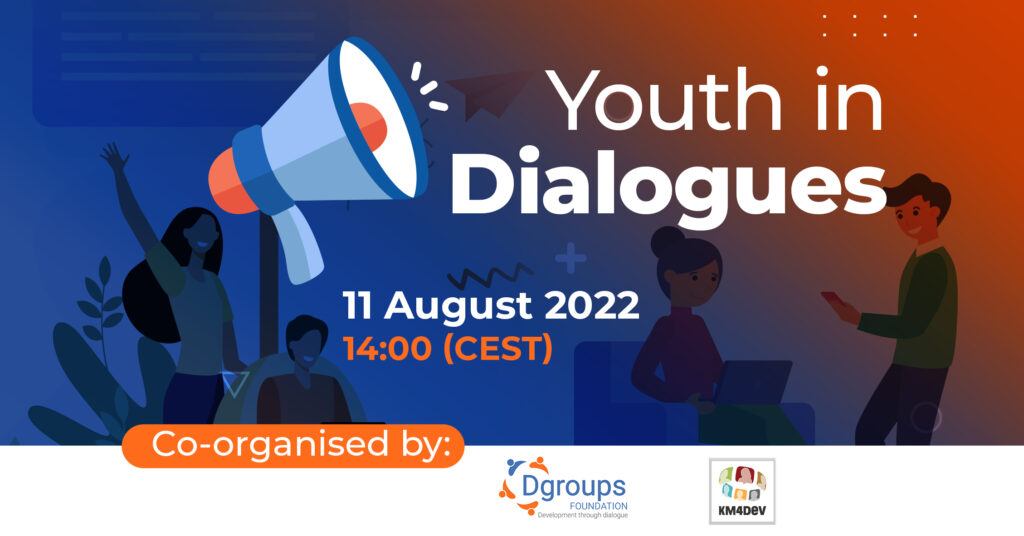Thursday 11 August 2022 – 2 pm CEST – check time in your time zone
Registration link: https://bit.ly/3yRXCle

Development and humanitarian organisations increasingly want to include and act upon the voices, opinions, and insights of young people.
They often do this by setting up specific youth dialogues and fora, by inviting youth into other events and activities, and by giving roles to young people in programs and projects.
As examples, the EU Youth Dialogue happens in 18-month work cycles, to ensure that “the opinion, views, and needs of young people and youth organisations are taken into account when defining the EU’s youth policies.” At the global level, the UN Deputy Secretary-General has embarked on a series of dialogues to connect with youth representatives – such as with the Virtual Youth Dialogue on Climate hosted in 2021. Another recent example is the World Bank Group Youth Summit 2022 which took place in May 2022 in Washington DC and virtually.
We also see an appetite from young people themselves to create spaces and actively contribute to dialogue and debate on a wide range of technical, societal, and policy questions. Young people are digitally connected as never before and they use digital platforms and tools differently than previous generations.
As we look forward, how can development organisations best include young voices in dialogues? And what can we learn from the ways that youth engage online, to better respond to their aspirations and needs and devise more inclusive online dialogues?
To mark this year’s International Youth Day, the Dgroups Foundation and KM4Dev will convene a facilitated online dialogue on “youth in dialogues”. We aim to bring together experiences where dialogue and other processes have explicitly worked with youth or tried to amplify their voices on development and humanitarian issues.
The “youth in dialogue” event will explore the following questions:
- How are youth being brought into and involved in local to global dialogues?
- Which format(s) are being used to engage youth? And with what results?
- How and where are young people themselves engaging in dialogue and becoming part of the solution to global issues?
- What actions or activities seem to help such dialogues with youth continue and produce results into the future?
- What are ‘good practices’ in involving youth?
- What value is being created for youth themselves in these processes? Is there reciprocity from organizations?